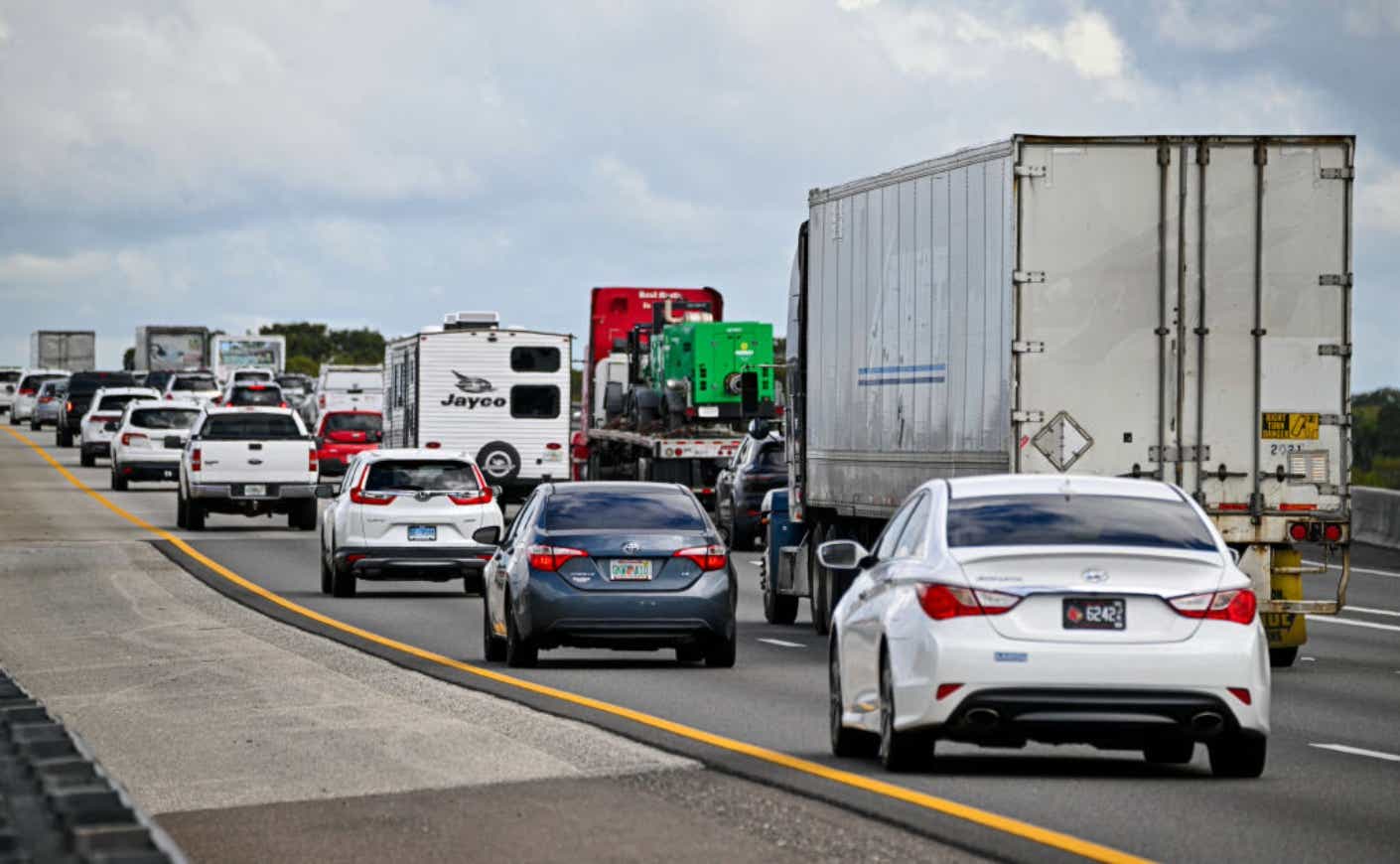Florida is bracing for another monster tropical storm less than two weeks after Hurricane Helene made its devastating landfall. After rapidly intensifying earlier this week, Hurricane Milton's expected to hit Tampa Bay with full force on Wednesday.
Local officials have urged people to leave the heavily populated city and are already saying this is likely the biggest evacuation the state has seen since Hurricane Irma in 2017. President Biden has already called these urgent warnings a "matter of life and death," while Tampa Bay mayor Mayor Jane Castor made a similar if not more stern plea. "I can say without any dramatization whatsoever: If you choose to stay in one of those evacuation areas, you are going to die," Castor said.
But packing up and leaving isn’t as easy as you might think. Some factors can make it difficult or impossible for some to evacuate safely.
Not enough gas
Amid mass evacuations, some parts of Florida have struggled to keep up with the demand for fuel. As of Tuesday afternoon, 17.4 percent of gas stations statewide don't have fuel, up from just 3 percent on Monday, according to tracking service GasBuddy.
"Lines at gas stations have been long,” Florida Gov. Ron DeSantis said Tuesday during a news conference. “Gas stations are running out quicker than they otherwise would.”
In order to combat these shortages, the state's distributing fuel from its own reserves, which include more than 100,000 gallons of gasoline. DeSantis said an additional 1.2 million gallons of gas and diesel are on the way, adding that the Florida Highway Patrol escorted 27 fuel trucks to deliver fuel to stations.
Still, long lines and empty pumps are undoubtedly nerve-wracking for those trying to leave town — and the clock is ticking.
No place to go
Some people might not know where to go, and this is especially true for those with animals. Many emergency shelters don't allow pets for public health reasons, though service animals are always welcome.
To complicate the situation further, many hotels as far north as Dothan, Alabama, have yet to report any vacancy at their area hotels. Even places with available rooms could be too costly for those without the financial means.
Florida resident Kim Tynan told The Washington Post that she spent $700 on two pet-friendly rooms. But she acknowledged that "some people can't afford that," especially those who lost their homes and cars during Hurricane Helene.
To help address the lack of available hotels and places to stay, Atlanta Motor Speedway has opened up its campgrounds, provided you have your own camper or RV.
No support
People with disabilities, including seniors, might need some extra help to get to safer ground, but they don't always get this life-saving support. Disability advocate Kelsey Lindell emphasizes that people with disabilities are up to four times more likely to die in disasters, like hurricanes, than the general population.
"It's not that disabled people don't want to leave; it's that they usually can't due to either lack of accessible evacuation plans and transportation, or finances, usually both," she tells Katie Couric Media.
While many factors are at play, cost is a big one. Federal government assistance is modest at best: Most disabled people in the U.S. receive an average of around $1,500 per month in Social Security Disability Insurance (SSDI) benefits, which might just be enough to cover rent. On top of that, many are paid less than the federal minimum wage — with some making as little as 25 cents per hour. "Disabled people cannot save for emergencies without risking life-saving and sustaining care they need," says Lindell, who's the founder and CEO of Misfit Media.
Even if they do evacuate, these vulnerable populations may not have access to transportation with accessible seating. Vital medical equipment or medications also might not be readily available at emergency shelters.
Still, about a dozen residents from local assisted-living facilities in Tampa were first in line for the emergency shelter at Tropicana Field, home to Major League Baseball's Tampa Bay Rays. But many more are likely stranded alone at home, hoping to wait out the storm.
Other barriers
Resources aside, some people in the area have no choice about whether to evacuate. As of Tuesday, the Manatee County Jail in Palmetto, Fla., is not planning to relocate its prisoners, even though forecasts call for a storm surge of up to 15 feet in the area. Jail officials have reportedly stocked up on sandbags and supplies, and they've made plans to move inmates to the second floor in the event of flooding.
Storms can also create a particularly dangerous situation for people who don't primarily speak English. Even though many emergency warnings are also now in Spanish, there's still a gap for those who speak other languages. According to the Census Bureau, more than 400,000 Florida households speak Haitian Creole as their primary language. Still, tens of thousands of others speak Vietnamese, French, Arabic, and German, among other languages.
"While looking at an evacuation map at a county in Florida, I saw they have it in both English and Spanish and thought, 'OK, that's great.' But also, there are people there who may not speak either language," Cara Cuite, an assistant professor at Rutgers University, told NPR in 2022.
Next time you hear of someone deciding not to evacuate during a storm despite warnings, consider the fact that they might have a pretty valid reason not to.









